AI Trends in Bridging The Healthcare Gaps
Published: 21 Jun 2025
Currently, 4.5 billion people lack access to essential healthcare services and by 2030, there is an expected shortage of 11 million healthcare workers. These statistics highlight the immense challenges the global healthcare system faces. But there’s hope on the horizon, Artificial Intelligence is emerging as a powerful tool that could help close these gaps.
AI has the potential to revolutionize healthcare by increasing efficiency, improving diagnostics and even helping to address the shortage of healthcare workers. With AI technologies, we can bring healthcare to underserved areas, provide personalized treatments and make medical expertise available to more people.

This post will explore the trends in AI for healthcare and how this technology is changing the way we think about health services around the world. Let’s dive into how AI is making healthcare more accessible and efficient for everyone.
AI in Diagnostics: Detecting Diseases Early
AI is transforming the way we detect diseases, making it possible to diagnose conditions earlier and more accurately than ever before. Traditionally, diagnosing diseases like cancer, heart disease and neurological disorders required multiple tests and lengthy consultations. Now, AI is speeding up this process and providing more reliable results.
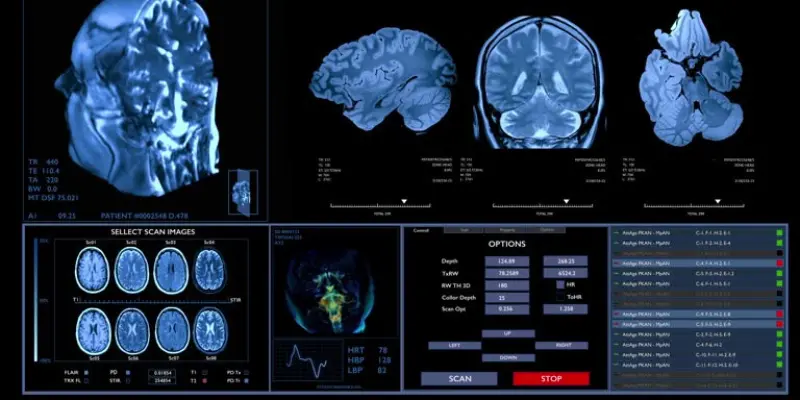
How It Works
AI systems analyze medical images such as X-rays, MRIs and CT scans. They are trained to recognize patterns and anomalies that might be missed by human eyes. With the ability to process large amounts of data quickly, AI can detect early signs of diseases, sometimes even before symptoms appear.
Real-Life Example
One powerful example is AI’s ability to detect early-stage breast cancer. Companies like Google Health have developed AI models that can identify tumors in mammograms with higher accuracy than human radiologists. This early detection can be life-saving, as it allows for quicker treatment and better outcomes.
By integrating AI into diagnostic tools, healthcare providers can offer quicker and more accurate results to patients, improving survival rates and overall health outcomes. AI doesn’t replace doctors but rather assists them in making better, faster decisions for patients.
Personalized Medicine: Tailoring Treatments to Individuals
Personalized medicine is an innovative approach in healthcare, where treatments are tailored to the unique characteristics of each patient. AI plays a vital role in this process by analyzing a person’s genetic information, medical history and lifestyle choices to recommend the best possible treatment.
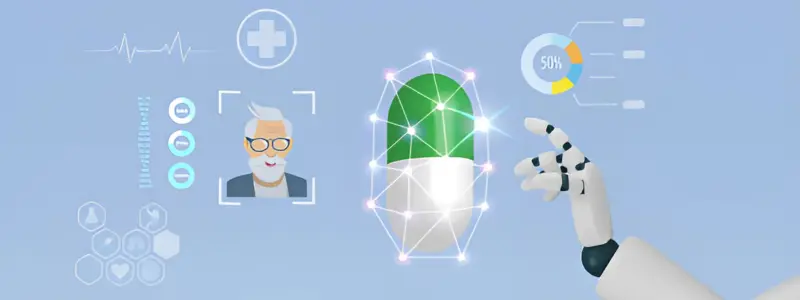
What It Means
Rather than using a one-size-fits-all approach, personalized medicine takes into account the specific needs of each individual. With AI’s ability to analyze vast amounts of data, healthcare providers can create more effective treatment plans that are unique to each patient.
How AI Helps
AI can analyze a patient’s genetic makeup, lifestyle habits and medical history to predict which treatments will work best. By identifying patterns in data, AI can help doctors understand how a patient’s body might respond to certain medications, reducing the trial-and-error process.
Real-Life Example
For instance, in cancer treatment, AI is being used to match patients with the most effective therapies based on their genetic profiles. This can help in reducing the side effects and increasing the chances of successful treatment.
By using AI to personalize care, healthcare providers can deliver more precise treatments, improve recovery rates and minimize unnecessary side effects. It’s a big step toward making healthcare more efficient and effective for everyone.
AI in Drug Discovery: Accelerating Medication Development
AI is playing a crucial role in speeding up the process of discovering new drugs. The traditional method of drug discovery is long, expensive and often unpredictable. AI is changing that by using powerful algorithms to analyze vast amounts of data. This is helping scientists find new treatments faster and more efficiently.

How It Works
AI can analyze complex biological data to identify potential drug compounds that may have therapeutic effects. By processing large datasets and predicting how different molecules will interact with the body, AI models can point scientists toward promising candidates for further research.
Impact on Drug Development
AI not only speeds up the discovery process but also reduces the costs associated with it. By narrowing down the most likely candidates early on, AI helps in avoiding unnecessary experiments and clinical trials, making the entire process more cost-effective.
Real-Life Example
One well-known example is Atomwise, an AI platform that uses deep learning to predict how different compounds will interact with diseases. In one case, Atomwise identified a promising drug for Ebola which was then fast-tracked for further development.
AI is revolutionizing drug discovery by making the process faster, more cost-effective and more accurate. It’s helping to bring new medications to market quicker, offering hope for patients with previously untreatable conditions.
Virtual Health Assistants: AI Chatbots for Patient Support
AI-powered virtual health assistants are becoming increasingly common in healthcare settings, providing valuable support to both patients and healthcare professionals. These virtual assistants can handle a variety of tasks, from answering medical questions to providing reminders for medication, all while offering a more convenient and efficient way to manage health.
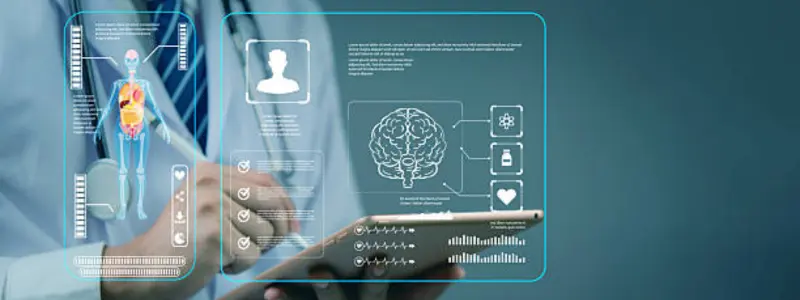
What It Does
Virtual health assistants powered by AI are capable of communicating with patients, answering their questions, scheduling appointments and even helping manage their ongoing care. They are available 24/7 and this feature makes them incredibly useful for routine check-ups or for patients who may need assistance outside of regular office hours.
Benefits for Patients and Healthcare Providers
For patients, virtual health assistants offer immediate responses to common health inquiries and help them stay on top of their medication or treatment schedules. For healthcare providers, these assistants streamline administrative tasks and reduce the burden on staff by handling repetitive queries and appointment bookings.
Real-Life Example
A well-known example is Babylon Health, an AI-powered health assistant that offers medical consultations via text and video. It can assess symptoms, give health advice and even help patients make decisions about the care they need. Babylon Health has been particularly valuable in providing healthcare access to underserved communities.
AI-powered virtual health assistants are revolutionizing patient care by providing timely, accurate and efficient support. They allow healthcare providers to focus more on critical tasks while patients enjoy faster and more convenient access to care.
Predictive Analytics: Foreseeing Health Risks
AI’s ability to analyze vast amounts of data and predict potential health issues before they occur is revolutionizing healthcare. Predictive analytics allows healthcare providers to identify risks early and intervene before conditions worsen, ultimately improving patient outcomes.
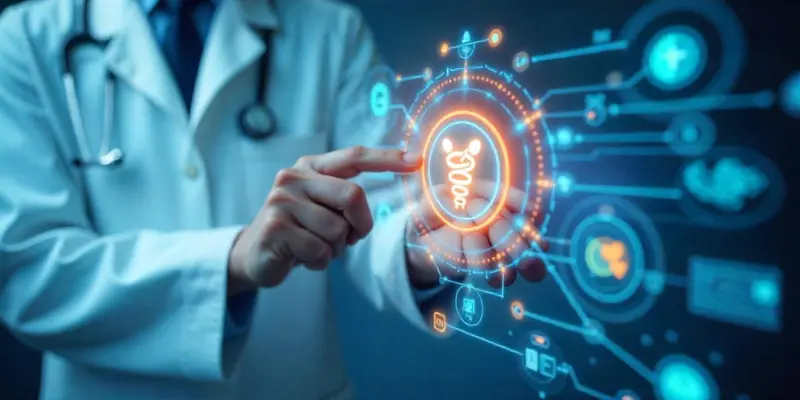
How It Works
AI uses historical patient data including medical records, lab results and lifestyle information, to spot patterns and trends. By analyzing this data, AI can predict which patients are at risk for certain conditions such as heart disease, diabetes or stroke, allowing doctors to intervene early.
Benefits for Healthcare
Predictive analytics helps healthcare providers be proactive rather than reactive. By catching potential problems early, doctors can implement preventative measures or start treatments sooner which reduces hospital readmissions and improves patient recovery rates.
Real-Life Example
One real-life example is the use of AI to predict sepsis in hospitalized patients. AI algorithms analyze real-time data such as vital signs and lab results to identify early signs of sepsis before it becomes life-threatening. This allows healthcare teams to take action quickly, saving lives and reducing complications.
By using predictive analytics, healthcare systems can move from a reactive approach to a more proactive one, ensuring better health outcomes and more efficient use of resources. AI’s ability to forecast health risks is making healthcare not only smarter but also more efficient.
AI in Mental Health: Enhancing Emotional Well-being
AI is making strides in mental health by providing valuable tools to diagnose, monitor and treat mental health conditions. With the increasing global need for mental health support, AI is helping to bridge the gap by offering innovative solutions to improve emotional well-being.
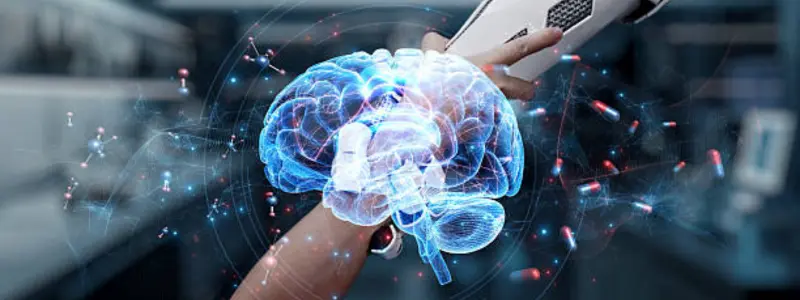
Applications in Mental Health
AI technologies can assist in diagnosing mental health conditions such as depression, anxiety and PTSD by analyzing patient data including behavioral patterns and speech. AI can also monitor ongoing mental health conditions by tracking changes in a person’s emotional state over time.
How It Helps
AI-powered systems use natural language processing and machine learning to analyze conversations, social media posts and even speech patterns. These systems can detect subtle signs of mental health conditions and provide early warnings to patients and their healthcare providers.
Real-Life Example
An example of AI in mental health is Woebot which is an AI-powered chatbot that uses cognitive behavioral therapy (CBT) techniques to help users manage their mental health. Woebot interacts with users through text-based conversations, offering support, strategies and coping mechanisms to address issues like anxiety and depression.
AI is transforming mental health care by making support more accessible and immediate. It offers a new way for people to manage their emotional health while also helping mental health professionals provide more personalized care.
AI in Healthcare Operations: Streamlining Administrative Tasks
AI is not only improving patient care but also enhancing the operational efficiency of healthcare facilities. With the growing demand for healthcare services, AI is playing a crucial role in reducing the administrative burden and improving the overall workflow within hospitals and clinics.
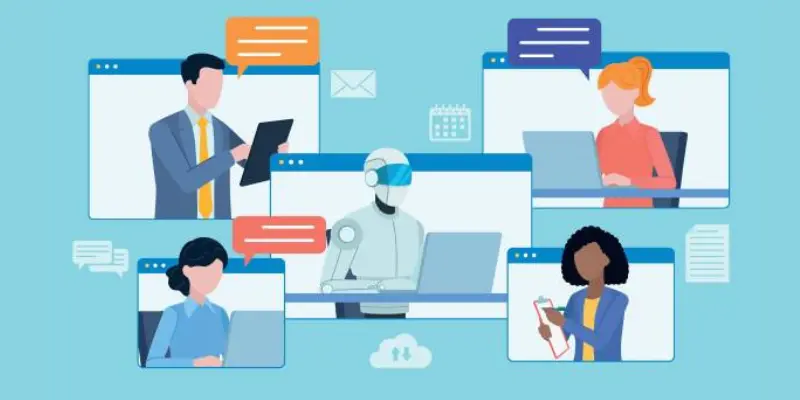
How It Works
AI can automate routine administrative tasks such as scheduling appointments, billing and patient data management. This automation reduces the workload on healthcare staff, allowing them to focus more on patient care and less on paperwork.
Benefits for Healthcare Providers
For healthcare providers, AI streamlines administrative tasks, reduces human error and cuts down on operational costs. It allows staff to spend less time on repetitive tasks and more time on tasks that directly impact patient outcomes.
Real-Life Example
A prime example of AI in healthcare operations is the use of AI-powered scheduling systems. Zocdoc, an online medical care scheduling platform that uses AI to help patients book appointments with doctors more efficiently, while also helping medical offices manage patient flow and availability. This reduces wait times for patients and improves efficiency within healthcare systems.
By implementing AI in healthcare operations, hospitals and clinics can provide faster services, improve operational efficiency and reduce administrative costs, all while enhancing the overall patient experience. AI is making healthcare systems smarter and more responsive to both staff and patient needs.
Challenges and Ethical Considerations
While AI has the potential to revolutionize healthcare, it also brings certain challenges and ethical concerns that must be addressed to ensure its responsible use.
Key Challenges
- Data Privacy: AI systems rely on large datasets to function, including sensitive health data. Ensuring this data is kept secure and used responsibly is a top priority.
- Bias in AI Algorithms: AI systems can sometimes inherit biases from the data they are trained on. This could lead to unfair treatment for certain groups of people, especially in areas like diagnosis and treatment recommendations.
- Adoption in Low-Resource Settings: Many AI technologies require significant infrastructure, making it challenging for low-resource regions to benefit from these advancements.
How AI Can Overcome These Challenges
- Data Security Measures: Strong encryption, anonymization and regulatory frameworks can help to protect patient data and ensure privacy.
- Improving Algorithm Transparency: Developers can work towards creating more transparent AI models to reduce bias. Regular audits and updates can ensure fairness and accuracy.
- Affordable AI Solutions: Developing low-cost AI tools and solutions can help make these technologies accessible to underserved communities, improving global healthcare access.
Ethical Considerations
AI in healthcare must be used responsibly to avoid ethical dilemmas such as:
- Autonomy vs. Automation: How much decision-making should AI systems have? It’s important to strike a balance where AI assists but doesn’t replace the healthcare professional’s judgment.
- Informed Consent: Patients need to be fully aware of how AI is being used in their healthcare, ensuring that they have given consent for AI-driven decisions.
AI has great promise but it needs to be integrated thoughtfully to ensure it benefits everyone without compromising fairness or safety. Healthcare organizations must remain vigilant about these challenges and work towards responsible AI use.
Conclusion
AI is rapidly transforming the healthcare industry by offering exciting opportunities to improve patient care, increase efficiency and reduce costs. From early disease detection and personalized treatment plans to drug discovery and mental health support, AI is paving the way for more affordable healthcare solutions.
However, the journey is not without challenges. Issues like data privacy, algorithmic bias and ethical concerns need to be addressed to ensure AI’s responsible use in healthcare. As technology advances, it’s essential that healthcare professionals, regulators and tech developers work together to create solutions that benefit everyone, especially underserved populations.
The future of healthcare is bright with AI and as we continue to explore its full potential, we can look forward to a system that is smarter, faster and more responsive to the needs of patients around the world. AI has the power to bridge healthcare gaps and shape a healthier future for all.
Related Queries About AI trends In Healthcare
Here are frequently asked questions about AI revolution in healthcare:
The cost varies widely depending on the service and location. Many AI-powered diagnostic tools are integrated into existing healthcare systems, so patients may not pay extra fees directly. However, some specialized AI treatments or consultations with AI-enhanced services might have premium pricing.
No, AI is designed to assist healthcare professionals, not replace them. AI handles data analysis and routine tasks while doctors and nurses provide human judgment, empathy and complex decision-making. The goal is to free up healthcare workers to focus more on direct patient care.
AI often matches or exceeds human accuracy in specific tasks like reading medical images or detecting patterns in data. However, AI works best when combined with human expertise for overall patient care. The accuracy depends on the quality of data the AI was trained on and the specific medical task.
Healthcare AI systems must follow strict privacy laws like HIPAA in the US. Data is typically encrypted and anonymized before being used for AI training. However, patients should always ask their healthcare providers about data security measures and how their information will be used.
Yes, AI can make errors, especially if trained on incomplete or biased data. This is why AI recommendations are typically reviewed by human healthcare professionals before final decisions are made. AI is a powerful tool, but human oversight remains essential for patient safety.
Many AI in healthcare tools are already available in hospitals and clinics in developed countries. However, widespread global access, especially in underserved areas may take 5-15 years depending on infrastructure development and cost reduction. Some basic AI health apps are already accessible on smartphones.
Most patient-facing AI health tools are designed to be user-friendly and require no special training. Virtual health assistants and health apps typically work through simple conversations or easy-to-follow interfaces. Healthcare providers will guide you through any complex AI-assisted procedures.
AI can be particularly helpful with rare diseases by analyzing vast databases of medical literature and patient cases. It can identify patterns and suggest potential diagnoses that human doctors might not immediately consider. However, rare disease diagnosis still requires specialized medical expertise working alongside AI.
Healthcare facilities have backup systems and protocols in place for technology failures. Traditional medical equipment and human expertise remain available as fallbacks. AI systems are typically used to enhance care rather than as the sole method of treatment, ensuring continuity of care.
You have the right to know if AI is being used in your healthcare decisions. Ask your healthcare provider directly about any AI tools involved in your diagnosis or treatment. Many healthcare facilities are now required to inform patients about AI use as part of informed consent procedures.





